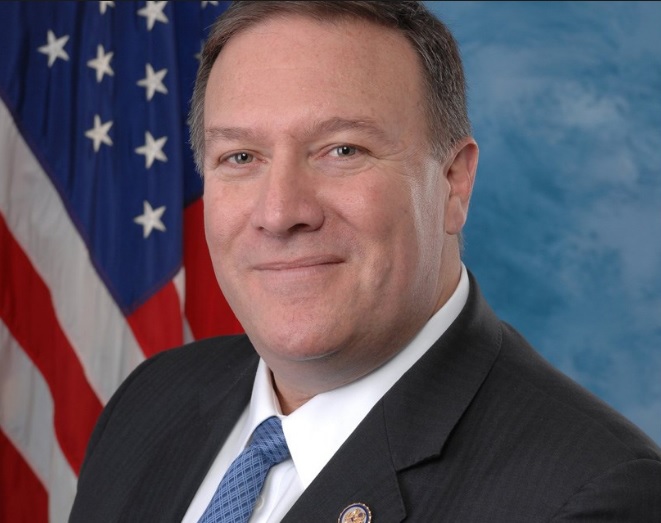
Washington, United States | AFP |
President-elect Donald Trump announced three important cabinet appointments Friday, for the posts of CIA director, attorney general and national security advisor.
The following are thumbnail sketches of the three men:
CIA director
Mike Pompeo, the Republican legislator nominated to lead the CIA, is a well-known hawk and strident critic of the Iran nuclear deal.
A graduate of the West Point military academy and later Harvard Law School, Pompeo worked in the powerful Republican-oriented law firm Williams and Connolly and ran, then sold, an aerospace components firm, Thayer Aerospace.
With financial support from the influential conservative billionaire Koch brothers, he was elected in Kansas in 2010 to the House of Representatives, where he was a member of the hardline Tea Party faction.
In the House, the 52-year-old made his name as one of the leaders of the controversial Benghazi Committee, which targeted Trump’s presidential rival Hillary Clinton in its investigation of the 2012 attack on the US consulate in the Libyan city which left four Americans, including the US ambassador, dead.
Pompeo gained exposure to intelligence matters in 2013 when he was appointed to the House Intelligence Committee.
In that venue he leveled scathing criticism of the Obama administration’s deal with Iran to lift sanctions in exchange for halting its program to develop nuclear weapons.
Ahead of his nomination, on Thursday he tweeted: “I look forward to rolling back this disastrous deal with the world’s largest state sponsor of terrorism.”
His nomination was hailed on Friday by Republican Devin Nunes, the chairman of the intelligence committee, which will have to approve his appointment.
Attorney general
Jeff Sessions, Trump’s choice to be US attorney general, is an arch-conservative southerner haunted by racially charged comments he made decades ago.
Now a 69-year-old senator from Alabama, Sessions was once denied a judgeship amid concerns over his past comments about blacks, and over remarks that appeared sympathetic to the Ku Klux Klan.
The allegations came out in 1986 during witness testimony to the Senate Judiciary Committee as Sessions sought approval to be a federal district court judge. He was turned down, in an extremely rare step.
During the lengthy testimony, Sessions admitted that, when told that a white lawyer had been called a “disgrace to his race” for defending African-Americans, he responded by saying: “Well, maybe he is.”
It also emerged during the hearings that in the 1980s he allegedly addressed a black prosecutor working for him as “boy,” and joked about the Ku Klux Klan saying he thought its members were “OK, until I found out they smoked pot,” according to The New York Times.
Sessions denied making that first comment, and said he meant the second as a joke.
He could face renewed questioning on race as he goes before the Senate to seek approval of his appointment.
A member of the Senate since 1996, Sessions is an outspoken voice against giving undocumented immigrants a path to US citizenship and in favor of reduced spending and a tough approach to fighting crime.
National security adviser
Michael Flynn, Trump’s choice to be his powerful national security advisor, is a former military intelligence chief who sees militant Islam as the biggest threat to global stability.
The retired three-star general, a veteran of America’s wars in Iraq and Afghanistan, has courted controversy with extreme statements that critics say border on Islamophobia.
Meanwhile, the 57-year-old has taken a more flexible line on Russia and China, countries the outgoing administration of Barack Obama regards as the country’s principal strategic opponents.
Flynn’s paid appearance at a dinner in Russia last year sitting next to Russian President Vladimir Putin has raised eyebrows. So have his accommodating statements toward Moscow that suggest, along with Trump’s, a readiness to accept Russia’s seizure of Crimea and its support for embattled Syrian leader Bashar al-Assad.
Son of a Rhode Island banker, Flynn had a professional army career mainly in intelligence units. In the 2000s he served in Iraq and then Afghanistan, where he became director of intelligence for coalition forces.
A registered Democrat, he was named by Obama in 2012 to lead the 16,500-strong Defense Intelligence Agency, but was forced out in less than two years amid a turbulent restructuring effort and clashes with his superiors.
Since then he has repeatedly criticized the Obama government as inadequately focused on the Islamist threat, publishing a book this year entitled: “The Field of Fight: How We Can Win the Global War Against Radical Islam and Its Allies.”
In it he argues that Muslim countries must be forced to recognize and stamp out radical Islamic beliefs, which he says are “metastasizing” around the world.
“We’re in a global war, facing an enemy alliance that runs from Pyongyang, North Korea, to Havana, Cuba, and Caracas, Venezuela,” Flynn wrote in the New York Post in July.
Unlike the other two nominees announced Friday, Flynn’s appointment does not need approval from the Senate.
 The Independent Uganda: You get the Truth we Pay the Price
The Independent Uganda: You get the Truth we Pay the Price





